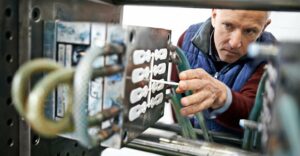In the comprehensive source titled “The Basics of Plastic Injection Molding Troubleshooting,” published on Plastics Today, the intricacies of plastics processing are unveiled. Achieving the efficient production of quality parts requires a finely tuned system that minimizes waste and maintains high productivity. Well-established companies can initiate their presses swiftly, generating minimal scrap—typically no more than three to five pieces—during the press startup, while consistently maintaining cycle times in line with initial projections. The ultimate challenge for processors lies in troubleshooting when validated processes encounter difficulties.
This article explores the fundamental steps in process troubleshooting. The ability to swiftly identify and rectify problematic conditions is the hallmark of a skilled processor. The process begins with a thorough inspection, crucial for understanding the root cause of any issues. Often, inexperienced processors make adjustments without a precise diagnosis of the problem. In a stable injection molding process, efficiency ranges from 100% to 105%, scrap is minimal (usually between zero and 1.5%), and valid processes can operate for multiple shifts with minimal adjustments. When problems arise, the initial step is to identify the cause. This involves verifying that all setpoints align with the setup sheet, meticulous cleaning and inspection of the mold, scrutinizing moving components and parting lines, and a detailed review of the mold in the area where defects are occurring. Additionally, the removal of hold and pack is required to confirm that the part’s “fill only” aspect falls within the range of 95% to 98%.
To learn more about Custom Engineered Wheels capabilities click here
Photo and article with all rights reserved, courtesy of plasticstoday.com

